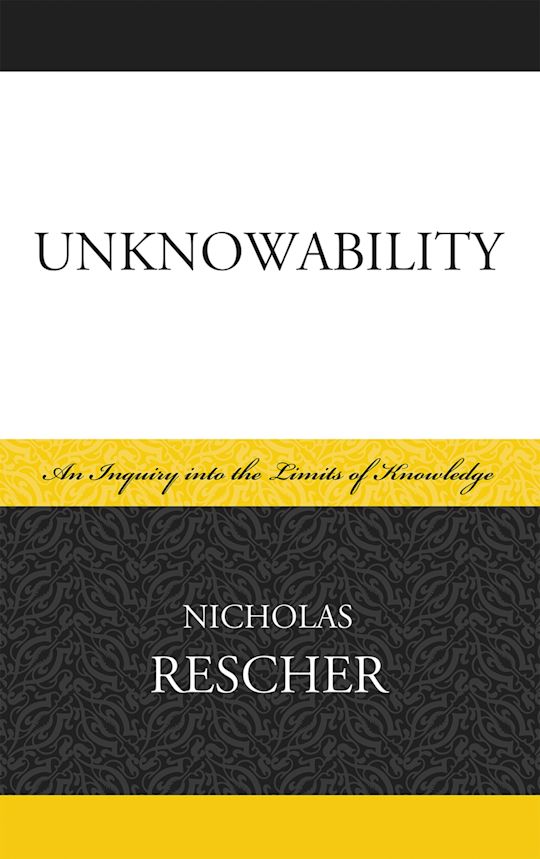- Home
- ACADEMIC
- Philosophy
- Epistemology
- Unknowability
Unknowability
An Inquiry Into the Limits of Knowledge
Unknowability
An Inquiry Into the Limits of Knowledge
This product is usually dispatched within 3 days
- Delivery and returns info
-
Free US delivery on orders $35 or over
You must sign in to add this item to your wishlist. Please sign in or create an account
Description
The realities of mankind's cognitive situation are such that our knowledge of the world's ways is bound to be imperfect. None the less, the theory of unknowability-agnoseology as some have called it-is a rather underdeveloped branch of philosophy. In this philosophically rich and groundbreaking work, Nicholas Rescher aims to remedy this. As the heart of the discussion is an examination of what Rescher identifies as the four prime reasons for the impracticability of cognitive access to certain facts about the world: developmental inpredictability, verificational surdity, ontological detail, and predicative vagrancy. Rescher provides a detailed and illuminating account of the role of each of these factors in limiting human knowledge, giving us an overall picture of the practical and theoretical limits to our capacity to know our world.
Table of Contents
Product details
| Published | Nov 04 2010 |
|---|---|
| Format | Paperback |
| Edition | 1st |
| Extent | 124 |
| ISBN | 9780739136164 |
| Imprint | Lexington Books |
| Dimensions | 9 x 6 inches |
| Publisher | Bloomsbury Publishing |
About the contributors

ONLINE RESOURCES
Bloomsbury Collections
This book is available on Bloomsbury Collections where your library has access.



































